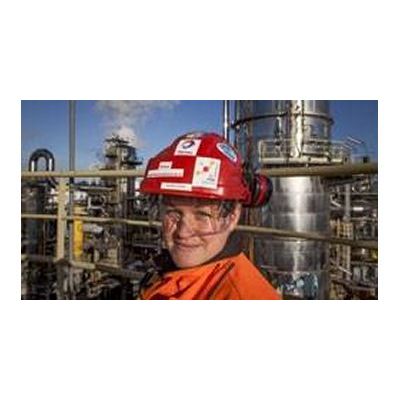

Total S.A

Fields of Expertise Services
FromTotal S.A
Refining involves distilling crude oil to obtain various fractions that are then processed into intermediate and commercial products. In petrochemical manufacturing, products from refining are converted to produce monomers and polymers, molecules which are found in many everyday items.
Most popular related searches
heavy fuel oil
fuel oil treatment
aviation fuel
fuel treatment
hydrogen conversion
petrochemical
oil refining
fuel sulfur content
desulfurization
diesel product
Refining, the Four Main Stages in Processing Crude Oil
Refining processes, crude oil is converted in four main stages:
- Atmospheric distillation — distillation at close to atmospheric pressure — separates the oil into different "fractions" or "cuts." When heated, the lightest and most volatile products such as butane, propane and light gasoline rise to the top of the distillation column and are drawn off. Other products, such as heavy naphtha jet fuel, diesel and home heating oil fractions, are recovered at different heights in the column. The residue, or heavy fuel oil, is drawn off at the bottom. Subjecting the residue to a second distillation process known as vacuum distillation yields additional diesel. The residue then left at the bottom of the column, which no longer contains diesel or light products, is used to manufacture asphalt and heavy fuel oil.
- Various conversion processes are carried out to alter the chemical structure of the base fractions produced by distillation. Catalytic cracking uses a catalyst and high temperatures of around 500°C to break down the heavy molecules and convert them into lighter products, such as gas, gasoline and diesel. Hydrocracking acts in a similar way but can also produce ultra-low sulfur diesel, with the help of hydrogen. Deep conversion processes such as coking further boost the amount of light products obtained from heavy fuel oil.
- Treatment processes remove or neutralize acidic, corrosive or environmentally harmful components. Desulfurization, or sulfur recovery, is a key treatment process in the refining industry today. Despite heavier feedstock containing more sulfur, refineries have to be able to produce automotive and other fuels with ever-lower sulfur contents, in line with increasingly stringent environmental standards.
- Blending — the final stage — is decisive in ensuring that the finished products meet very precise technical specifications.
